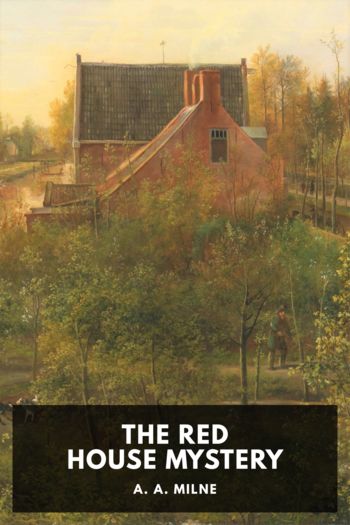Short Fiction - Edgar Allan Poe (book reader for pc .TXT) 📗

- Author: Edgar Allan Poe
Book online «Short Fiction - Edgar Allan Poe (book reader for pc .TXT) 📗». Author Edgar Allan Poe
“Thus we see, at a glance, that what has been most triumphantly adduced in support of the idea that the articles had been ‘for at least three or four weeks’ in the thicket, is most absurdly null as regards any evidence of that fact. On the other hand, it is exceedingly difficult to believe that these articles could have remained in the thicket specified, for a longer period than a single week—for a longer period than from one Sunday to the next. Those who know anything of the vicinity of Paris, know the extreme difficulty of finding seclusion unless at a great distance from its suburbs. Such a thing as an unexplored, or even an unfrequently visited recess, amid its woods or groves, is not for a moment to be imagined. Let anyone who, being at heart a lover of nature, is yet chained by duty to the dust and heat of this great metropolis—let any such one attempt, even during the weekdays, to slake his thirst for solitude amid the scenes of natural loveliness which immediately surround us. At every second step, he will find the growing charm dispelled by the voice and personal intrusion of some ruffian or party of carousing blackguards. He will seek privacy amid the densest foliage, all in vain. Here are the very nooks where the unwashed most abound—here are the temples most desecrate. With sickness of the heart the wanderer will flee back to the polluted Paris as to a less odious because less incongruous sink of pollution. But if the vicinity of the city is so beset during the working days of the week, how much more so on the Sabbath! It is now especially that, released from the claims of labor, or deprived of the customary opportunities of crime, the town blackguard seeks the precincts of the town, not through love of the rural, which in his heart he despises, but by way of escape from the restraints and conventionalities of society. He desires less the fresh air and the green trees, than the utter license of the country. Here, at the roadside inn, or beneath the foliage of the woods, he indulges, unchecked by any eye except those of his boon companions, in all the mad excess of a counterfeit hilarity—the joint offspring of liberty and of rum. I say nothing more than what must be obvious to every dispassionate observer, when I repeat that the circumstance of the articles in question having remained undiscovered, for a longer period than from one Sunday to another, in any thicket in the immediate neighborhood of Paris, is to be looked upon as little less than miraculous.
“But there are not wanting other grounds for the suspicion that the articles were placed in the thicket with the view of diverting attention from the real scene of the outrage. And, first, let me direct your notice to the date of the discovery of the articles. Collate this with the date of the fifth extract made by myself from the newspapers. You will find that the discovery followed, almost immediately, the urgent communications sent to the evening paper. These communications, although various and apparently from various sources, tended all to the same point—viz., the directing of attention to a gang as the perpetrators of the outrage, and to the neighborhood of the Barrière du Roule as its scene. Now here, of course, the suspicion is not that, in consequence of these communications, or of the public attention by them directed, the articles were found by the boys; but the suspicion might and may well have been, that the articles were not before found by the boys, for the reason that the articles had not before been in the thicket; having been deposited there only at so late a period as at the date, or shortly prior to the date of the communications, by the guilty authors of these communications themselves.
“This thicket was a singular—an exceedingly singular one. It was unusually dense. Within its naturally walled enclosure were three extraordinary stones, forming a seat with a back and footstool. And this thicket, so full of a natural art, was in the immediate vicinity, within a few rods, of the dwelling of Madame Deluc, whose boys were in the habit of closely examining the shrubberies about them in search of the bark of the sassafras. Would it be a rash wager—a wager of one thousand to one—that a day never passed over the heads of these boys without finding at least one of them ensconced in the umbrageous hall, and enthroned upon its natural throne? Those who would hesitate at such a wager, have either never been boys themselves, or have forgotten the boyish nature. I repeat—it is exceedingly hard to comprehend how the articles could have remained in this thicket undiscovered, for a longer period than one or two days; and that thus there is good ground for suspicion, in spite of the dogmatic ignorance of Le Soleil, that they were, at a comparatively late date, deposited where found.
“But there are still other and stronger reasons for believing them so deposited, than any which I have as yet urged. And, now, let me beg your notice to the highly artificial arrangement of the articles. On the upper stone lay a white petticoat; on the second a silk scarf; scattered around, were a parasol, gloves, and a pocket-handkerchief bearing the name, ‘Marie Rogêt.’ Here is just such an arrangement as would naturally be made by a not-over-acute person





Comments (0)